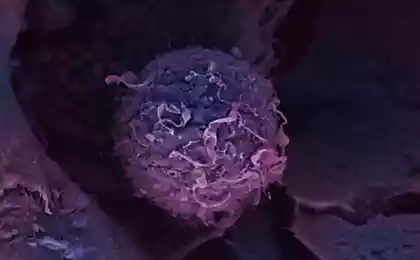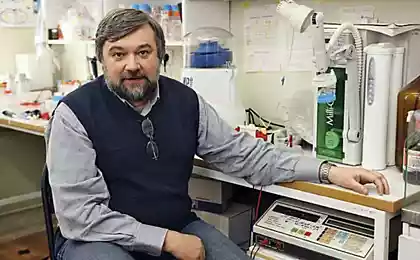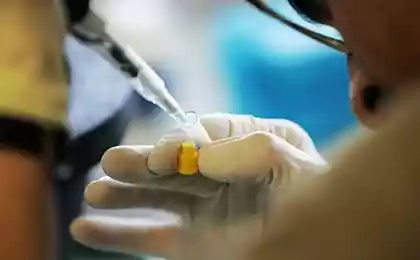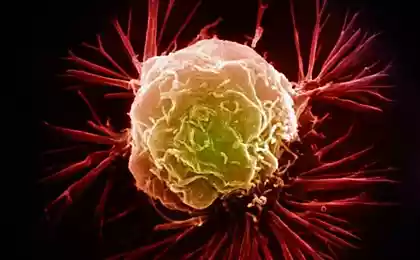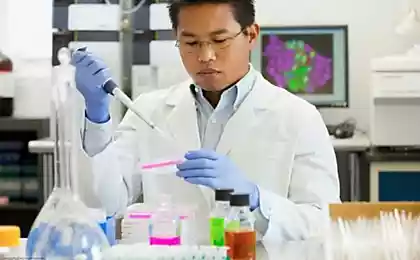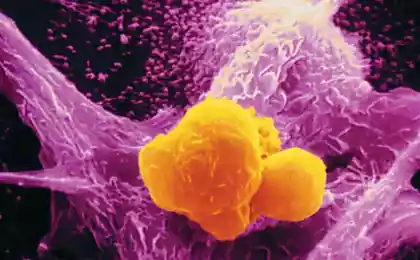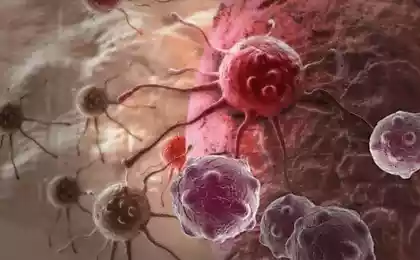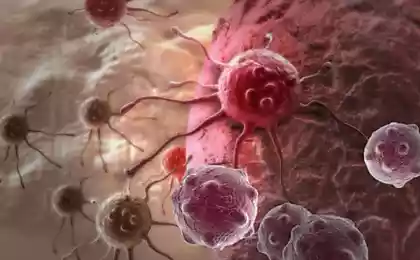1083
Cancer cells can be reprogrammed on the theoretically normal operation

The circuit cell aggregation - clumping them in multicellular education. Illustration: Wikipedia i>
Researchers at the Mayo Clinic - one of the world's largest private medical centers - have found a way to theoretically possible "reprogram" the cancer cells so they are back to normal. The scientific article опубликована in the journal Nature Cell Biology i> ( pdf ).
The discovery is "suddenly found a new biological mechanism that provides the code to disable the cancer program," - says Dr. Panos Anastasiadis (Panos Anastasiadis, Ph.D.), lead author of the research, the director of отделения Cancer Biology at the Mayo Clinic.
Said code deciphered by the discovery of a new process. It turned out that the so-called "protein aggregation» («adhesion proteins» in the diagram) E-cadherin, p120 catenin, and the recently discovered PLEKHA7 their top - the glue that holds the cells together at aggregation - affect the formation of molecules of microRNA. < br />
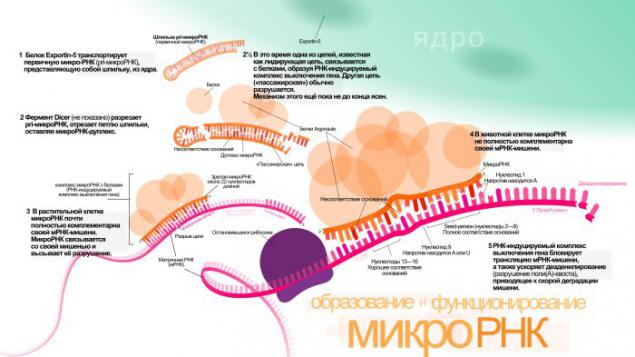
MicroRNAs (clickable). Illustration: Wikipedia i>
МикроРНК - Small non-coding RNAs of 18-25 nucleotides in length (mean 22). These microRNA control various cell programs at the same time regulating the expression of several genes. Researchers have found that when normal cells are in contact with each other, the specific set of miRNAs suppresses the genes promoting cell growth.
But if cell clumping is broken, these miRNAs are not activated and cell growth goes out of control, leading to cancer.
"We think that the loss of apical complex PLEKHA7-microprocessor - it's early, and to some extent the universal event when a cancer - said Dr. Anastasiadis. - The vast majority of tumor samples that we investigated, apical structure is absent, although E-cadherin, and p120 catenin is available. It's like a race car, which has a lot of gasoline (E-cadherin, and p120 catenin), but no brake (complex PLEKHA7-microprocessor) ».
"In this work, a connection between the two areas of research that were previously not considered as being related to each other - cell aggregation and biology of miRNAs - which solves the problem of long standing before the scientists: what role protein aggregation in cell behavior, - says co-author of scientific work, Dr. Anthony Kurtidis (Antonis Kourtidis). - Most importantly, it provides a new strategy for treating cancer ».
"If cancer cells to restore normal levels of the corresponding miRNA, we should be able to return to work" braking system "and restore normal cell function - said Dr. Panos Anastasiadis. - The first experiments on some aggressive cancers produce very promising results ».
Well, if research results are confirmed, its authors will be able to qualify for the Nobel Prize.
Source: geektimes.ru/post/260894/
